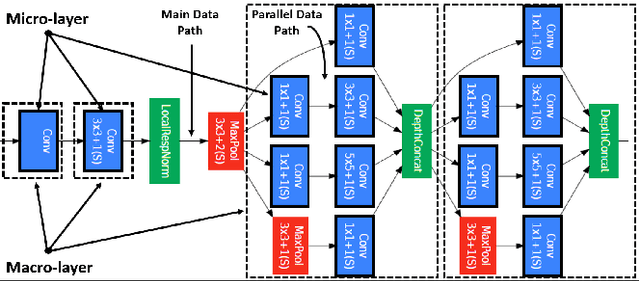Resource-Scalable CNN Synthesis for IoT Applications
Paper and Code
Dec 16, 2018



State-of-the-art image recognition systems use sophisticated Convolutional Neural Networks (CNNs) that are designed and trained to identify numerous object classes. Such networks are fairly resource intensive to compute, prohibiting their deployment on resource-constrained embedded platforms. On one hand, the ability to classify an exhaustive list of categories is excessive for the demands of most IoT applications. On the other hand, designing a new custom-designed CNN for each new IoT application is impractical, due to the inherent difficulty in developing competitive models and time-to-market pressure. To address this problem, we investigate the question of: "Can one utilize an existing optimized CNN model to automatically build a competitive CNN for an IoT application whose objects of interest are a fraction of categories that the original CNN was designed to classify, such that the resource requirement is proportionally scaled down?" We use the term resource scalability to refer to this concept, and develop a methodology for automated synthesis of resource scalable CNNs from an existing optimized baseline CNN. The synthesized CNN has sufficient learning capacity for handling the given IoT application requirements, and yields competitive accuracy. The proposed approach is fast, and unlike the presently common practice of CNN design, does not require iterative rounds of training trial and error.
 Add to Chrome
Add to Chrome Add to Firefox
Add to Firefox Add to Edge
Add to Edge